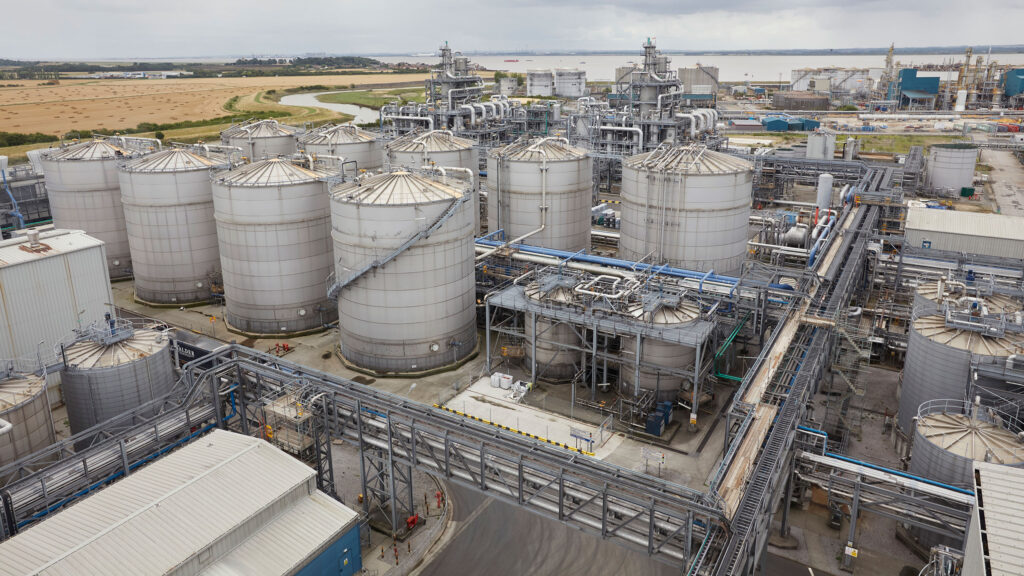Farmers to be hit by imminent closure of Vivergo ethanol plant
 Vivergo plant © Les Gibbon
Vivergo plant © Les Gibbon Associated British Foods’ (ABF) decision to close its bioethanol plant in Hull is “a huge blow” that will adversely impact the whole supply chain, according to the NFU.
The confirmation by ABF on Friday 15 August followed weeks of speculation that the loss-making site in East Yorkshire was doomed in the wake of the recent trade deal with the US.
See also: UK biofuels sector in jeopardy as US trade deal stings
As part of that deal, struck by UK prime minister Sir Keir Starmer and US president Donald Trump in May, the 19% tariff on 1.4bn litres of US bioethanol shipped to the UK was removed altogether.
That volume is equivalent to the entire UK ethanol market.
ABF had warned that, unless there was some kind of regulatory or financial solution provided by government, the loss-making Vivergo site would have to close.
The company entered into discussions with government, complaining that Vivergo’s commercial viability was undermined both by the way in which UK regulations already favoured foreign producers, and by the more recent removal of tariffs on US bioethanol.
“These two actions meant Vivergo would inevitably continue to be heavily loss-making without corrective government intervention to provide short-term financial support and a longer-term regulatory solution,” said an ABF spokesman.
Late last week it emerged that the government had decided not to offer either.
“Given these circumstances and the financial losses already incurred, ABF has determined in the interests of its shareholders that it cannot continue to support Vivergo,” said the spokesman.
“ABF will start an orderly closure process immediately, and Vivergo will have ceased all production of bioethanol and animal feed by 31 August 2025.”
A government spokesman said it had been working with ABF since June to better understand the financial challenges, but had decided not to offer direct funding “as it would not provide value for the taxpayer or solve the long-term problems the industry faces”.
Vital market
NFU combinable crops board chairman Jamie Burrows said the closure was not only “terrible news” for the hundreds of workers who will lose their jobs, but also for the thousands of people in the wider supply chain – including local farmers who have lost a vital market.
“Bioethanol production in the UK is such an important industry,” said Mr Burrows. “The volume of wheat entering the supply chain has been as high as 1.2m tonnes.
“It also plays a key role in producing a vital source of animal feed as a by-product, and carbon dioxide used by the wider food supply chain.”
AIC disappointment
The Agricultural Industries Confederation (AIC), the agri-supply industry’s leading trade association, expressed disappointment over the government’s decision not to support the UK bioethanol sector following the US-UK trade deal in May.
AIC chief executive Robert Sheasby warned the move puts jobs and UK wheat demand at risk, while also threatening the loss of 600,000t of domestically produced animal feed and carbon dioxide.
He added that members will now need to find alternative markets for grain displaced by the decision, which accounts for around 7% of this year’s projected wheat harvest.
As the UK’s largest bioethanol plant, Vivergo is capable of processing more than 1m tonnes of wheat annually, equivalent to almost 10% of the total UK crop.
It is also the UK’s largest single source animal feed supplier, producing roughly 400,000t of feed, alongside 420m litres of bioethanol. This will now cease.
